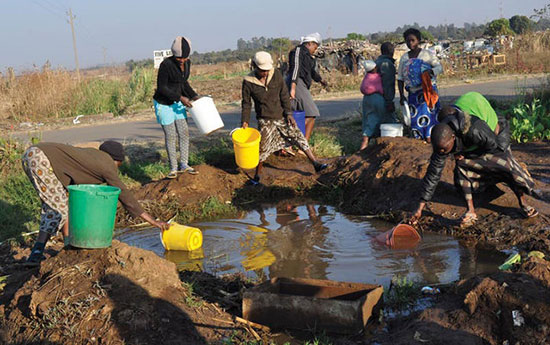Access to clean water in Kaleo-bile, a small farming community in the Wa East District is a challenge, as the people depend on a locally dug well and a near-by stream as their only source of water.
Women of the community in an interaction with the media during a tour lamented that access to water in the dry season was difficult, as the well which served as their only source of water in the dry season often dried up. Â
This, according to the women compelled them to battle with reptiles and other harmful animals at the well site at night.
The media tour to the Bullenga health facility, Veihah and Kaleo-bile communities in the Wa East District of the Upper West Region was led by WaterAid Ghana with the aim of ascertaining the water and sanitation situation in those communities.
The people noted that the situation exposed them to waterborne diseases especially children and also affected productivity levels of women in the community.
In addition, the people said they lacked a toilet facility in the community and lamented that the concept of Community Led Total Sanitation (CLTS) had not yet been brought to their notice.
At Veihah, the water situation was not different as the people relied on a single borehole rehabilitated by Pronet North with financial support from WaterAid Ghana in the dry season.
The people therefore appealed to the government and other stakeholders to come to their aid to help save them from preventable diseases.
While urging the government and stakeholders to prioritise WASH activities to help meet the SDG target on water and sanitation, Madam Yvonne Kafui Nyako, the Communications and Campaigns Officer of WaterAid Ghana acknowledged the progress Ghana has made in water coverage which stood at about 85 per cent.
She explained that WASH was a development issue which demanded financial commitment but lamented that government approved about 255 million Ghana cedis for the sector this year which according to her was woefully inadequate.
Madam Kafui noted that arresting the challenge of water and sanitation issues had trickle-down effect on other development sectors, since it would help increase productivity through effective time management and reduction of water and sanitation related infections.
She stated that in order to help the government achieve the SDG target on water and sanitation, WaterAid Ghana was committed to supporting rural communities to have access to clean water and good sanitation through the CLTS concept.





